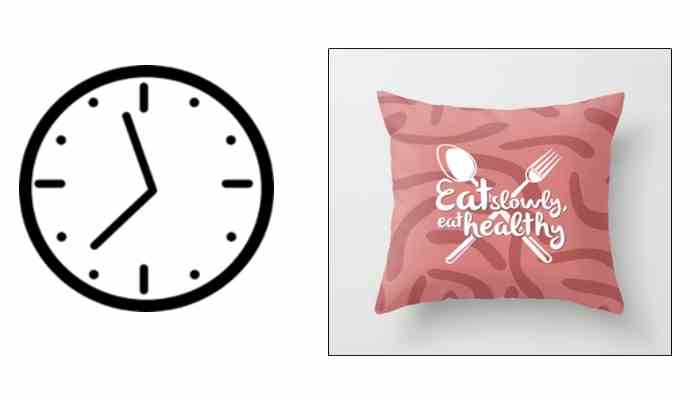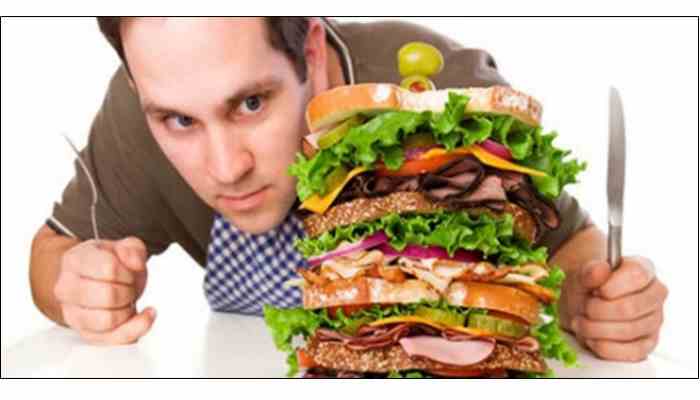
Slimming fast eating! It seems a bit of a commercial of some miraculous slimming product but, in fact, it has a scientific foundation now certain: our metabolism is not fixed, it can vary according to what we eat, how much we eat and the exercise we do. If you follow chronically a very stiff diet or even skip meals, our body goes "in alarm", thinks it is in a situation of famine and therefore goes into protection slowing down precisely all processes involved in metabolism just to save Energy and accumulating even the bit that you give it.
The body does not go hungry, so eat to lose weight!
More and more often we hear (or say) "I eat very little, how never fatten?" or "I eat healthy and do physical activity but I can not lose weight!!".
I wanted to write some tips that may seem rather trivial, in fact they are mistakes that we all commit daily, without doing it on purpose: they are trivial to say and to read but to put them into practice constantly is another story! These are small tips that, if put into practice in the long term, bring us psycho-physical benefits that also reflect on our line.
Pratical Tips
Do not skip meals
Especially the breakfast: the body needs to feel that it will not starve until the next day
Eating Seated

Not only the main meals (at home or at work/in the office) but also snacks. It's like sitting we send a signal to our brains saying "we're going to eat." Often that bite eaten on his feet, of escape, maybe himself in front of the fridge or the stove... that bite is not recorded, we do not realize that we have eaten, we do it untreated. Instead it is very important to be aware of having eaten or even just "nibbled"
Focus on
You have to focus and observe well all that you are going to eat, even perhaps making unique dishes that already contain all the necessary macronutrients (carbohydrates, proteins and fats). It is often considered to have eaten only what is in the pot: for example if you have in the dish a slice of meat with salad, you tend to consider only that as a meal and not everything that stands out from the plate "the piece of cheese , the slice of bread, the salami, the crostini etc... " A bit like when you skip the dinner to have a drink in the company, you think you have not eaten or otherwise have eaten little when instead you risk to exceed. So you have to focus first.
If put in front of a person all that pinches during the day you would realize that it is really much.
Eating Slowly

A meal must be consumed in 10-12 minutes. If there is a chance you should enjoy the moment of the meal, "take it Easy", it is a moment of wellbeing in which we are nourishing our body, we are doing good and we are not simply "filling the stomach". If you eat in a hurry, in less than five minutes, you will still have the feeling of hunger and you are taken to up before the next meal.
You also have to Chew and chew for good! It is a golden rule that everyone knows but in a few put into practice constantly. In addition to the time it takes to eat, it also affects the consistency of the food. The most consistent foods seem to favor a control of caloric revenues and even a more physiological slimming. The greater or lesser consistency of a food affects the ingested quantity, and therefore also on the line.
In short, to put it in the words of change, the more you chew, the less you eat, the more you fit!
Another strategy is that characteristic of the French that are usual to say that before you eat the raw or the most crispy food: start a meal with vegetables, then a protein source and only finally the carbohydrates this strategy has A clear effect on the glycemic curve and has a return this extremely beneficial for all inflammatory processes in the body .
Organization of the Meal
The organization of meals must be taken seriously as any other commitment. You have to carve out a time when you are more free to organize your next meal. If you get to the hungry meal, without an idea of the meal to make, you open the fridge and maybe you don't find anything... it's much easier and quicker to throw on something already ready, something fast, packed/bundled.
So you always have to have some options, some food easy to take or maybe you anticipate organizing "mealprep": for example portions of pasta or rice can be prepared in greater quantity for a subsequent meal (Cold pasta salads)... take advantage of the oven On to prepare also vegetables that you can store for the next day and use as a garnish or as a condiment for the dough.
Never get hungry at meals

This is an advice that you often hear. If you do not miss meals and you make the snacks break-hungry, you do not risk to get hungry but with the right dose of appetite. You always have to aim at satisfying yourself rather than filling. The moment of the meal must satisfy the palate and nourish the body. In addition to eating several times during the day, the taste can be changed.
Attention to fruit juices
Beyond the quality of these products (many have very low percentages of fruit as well as adding additives and sugars but there are also quality juices with higher price) but beyond this... a glass of 200-250 ml fruit juice can Also correspond to 35g-40g of carbohydrates (especially sugars) but between drinking a juice and eating a fruit, at the same content in sugars and carbohydrates there is so much difference: a fruit is more satisfying and has a greater power of satiation of a juice (also because It involves the process of chewing that is related to cognitive functions and gives much more satisfaction).
Limiting Snacks
For example: when we take a handful of almonds or walnuts for the snack or the biscuits for breakfast or other, you have to take your own portion and close the parcel before you even consume it. If you consume the portion and you leave near the open package you are tempted in the reasoning "I take another one, for once it does nothing" or maybe you continue to eat a bit for distraction a bit for gluttony and not for real hunger and necessity. This more than anything affects the long term... it is certainly not an additional biscuit than the program that will send a diet to roll but it is the sum effect.
So mindful eating: The theory of eating "with your head" without stretching out on something untreated and just because it is at your fingertips.
Limiting Distraction

Do not eat while working or in front of your TV or mobile phone. This is also a factor in eating sovrappensiero and resuming the theory of mindful eating.
Eating and drinking should not be considered as automatic actions, you have to enjoy and be aware of every single bite and sip, you have to enjoy the scent, taste, consistency... As I said, you have to satisfy and not simply fill! (not easy to implement)
If you're hungry... Drink it!
Very often happens to eat without there being a real hunger or necessity but it is very rare that you drink according to your needs.
Often the stimulus of thirst is "altered", it is perceived in a somewhat peculiar way: when one is hungry apparently "without reason", there is probably an altered perception of the signal of thirst.
You must always have a bottle at your fingertips (on the desk, on the stock exchange etc...).
Curated by
Dott.ssa Patalano Myriam Biologist Nutritionist
Ischia Nutrizione Patalano
